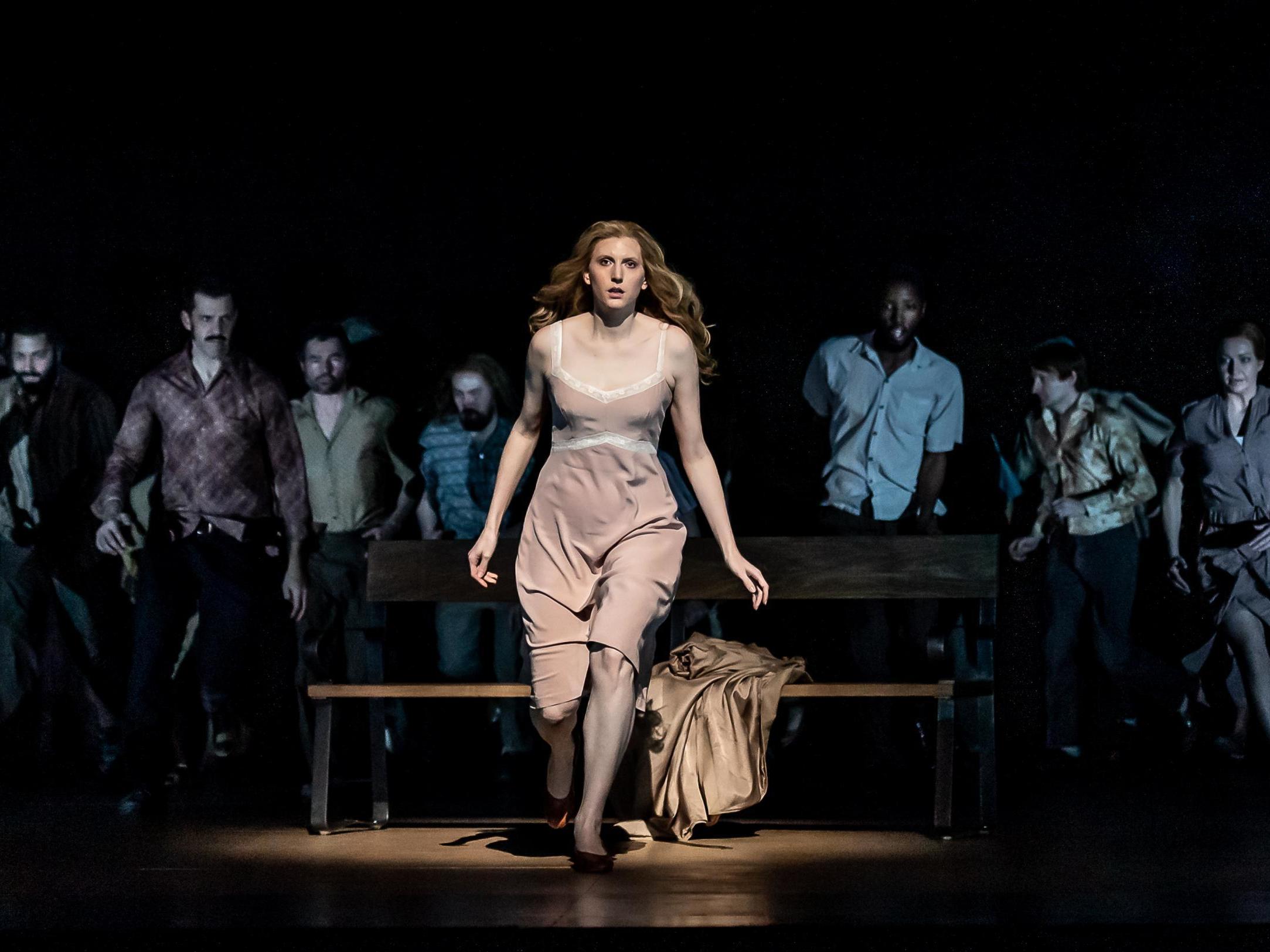Katya Kabanova, Royal Opera House, London, review: A wonderfully acted adaptation of Janacek's breakneck tragedy
Richard Jones's production of the classical opera has two heroes in soprano Amanda Majeski and conductor Edward Gardner

Your support helps us to tell the story
From reproductive rights to climate change to Big Tech, The Independent is on the ground when the story is developing. Whether it's investigating the financials of Elon Musk's pro-Trump PAC or producing our latest documentary, 'The A Word', which shines a light on the American women fighting for reproductive rights, we know how important it is to parse out the facts from the messaging.
At such a critical moment in US history, we need reporters on the ground. Your donation allows us to keep sending journalists to speak to both sides of the story.
The Independent is trusted by Americans across the entire political spectrum. And unlike many other quality news outlets, we choose not to lock Americans out of our reporting and analysis with paywalls. We believe quality journalism should be available to everyone, paid for by those who can afford it.
Your support makes all the difference.It never rains but it pours: three productions of Leoš Janáček's Kát’a Kabanová running in the same week – excellent ones from Scottish Opera and Welsh National Opera, and a new one from the Royal Opera directed by the always-interesting Richard Jones. And there are two heroes in Jones’s production. First, the American soprano Amanda Majeski in the title role, self-destructing with unnerving conviction under the inhuman pressures of village morality. And secondly, conductor Edward Gardner, here making his house-debut with such serene authority – in a score that twists and turns, dips and tosses, like a boat on turbulent seas – that he gets his own ovation at the interval.
But there shouldn’t be an interval, because this work rushes towards its tragic conclusion with hurtling inevitability. This was the first of four operas inspired by Janáček’s hopeless infatuation with a happily-married young woman, and its plot turns on the breach of a taboo: Kát’a is stifled by her marriage to the weakly mother-dominated Tichon, and yields to an adulterous love. The characters sing of Moscow and the Volga, but Jones and his designer Antony McDonald locate us in a village in Fifties Czechoslovakia, where gossip and twitching curtains ensure that everyone knows everything, and unacceptable emotions find no hiding place.
At one point the entire village stops, its denizens frozen like figures in a Lowry painting, but most of the time they are like a flock of starlings in disturbed and constant flight. In the storm scene this technique goes badly wrong – it just becomes a gimmick, and it’s accompanied by strobe lighting which has half the audience covering their eyes in self-defence. Otherwise the choreography brilliantly embodies the impetus of the music.
The moments of intimate drama are wonderfully acted. The scene unlocked by the symbolically-stolen key, in which parallel duets take place between Varvara (Emily Edmonds) and Kudrjáš (Andrew Tortoise) on the one hand and Boris (Pavel Cernoch) and Kát’a on the other, is poignant in the extreme: angst-ridden restraint contrasting with cosy sensuality. Andrew Staples’s Tichon isn’t the usual booby – he has his own dignity, and is all the more believable as a result. Susan Bickley’s Kabanicha is as vicious a tyrant as any I have seen in that role.
Meanwhile Majeski’s incarnation of Kát’a is a virtuoso performance. Projecting at the start a sweet innocence – a girl whom ‘a breeze would carry away, let alone the storm that hangs over her’, as Janáček put it – to desperation that her young husband shouldn’t go on his business trip and leave her prey to her own hungry amorousness, she expresses her mounting anguish as much with her body as with her voice.
Her dive into the river, and the ensuing confusion and consternation when her limp corpse is fished out, is adroitly dealt with, as is the opera’s balefully sphinx-like conclusion. Get rid of the strobe stuff and you’ve got a perfect evening.
Join our commenting forum
Join thought-provoking conversations, follow other Independent readers and see their replies
Comments